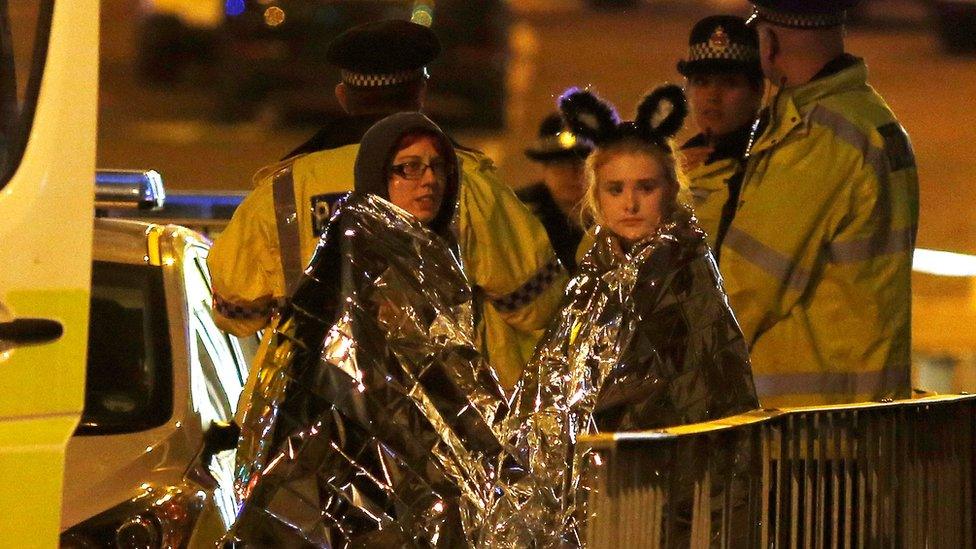Manchester Attack: Mental health support after arena blast
- Published
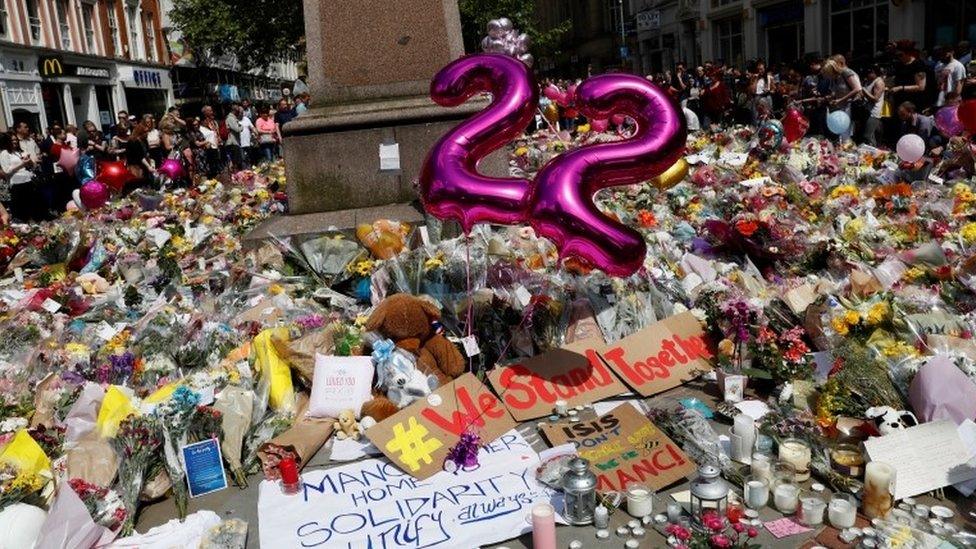
At least six children were killed in the blast including an eight-year-old girl, and a number of others were seriously injured
A dedicated mental health service to help people affected by the Manchester Arena attack has been launched.
Twenty-two people were killed when Salman Abedi detonated a suicide bomb at an Ariana Grande concert on 22 May.
The Manchester Resilience Hub, run by the NHS, will focus solely on helping those directly affected including children and emergency responders.
Clinical lead, Dr Alan Barrett, said it would target anyone across the UK "still struggling to cope".
He said: "The attack will have affected lots of people in some way or another but most will find they recover naturally and don't require any professional support.
"Reactions are likely to be strongest in those closest to the incident, who directly witnessed the aftermath and who were involved in the immediate care of victims.
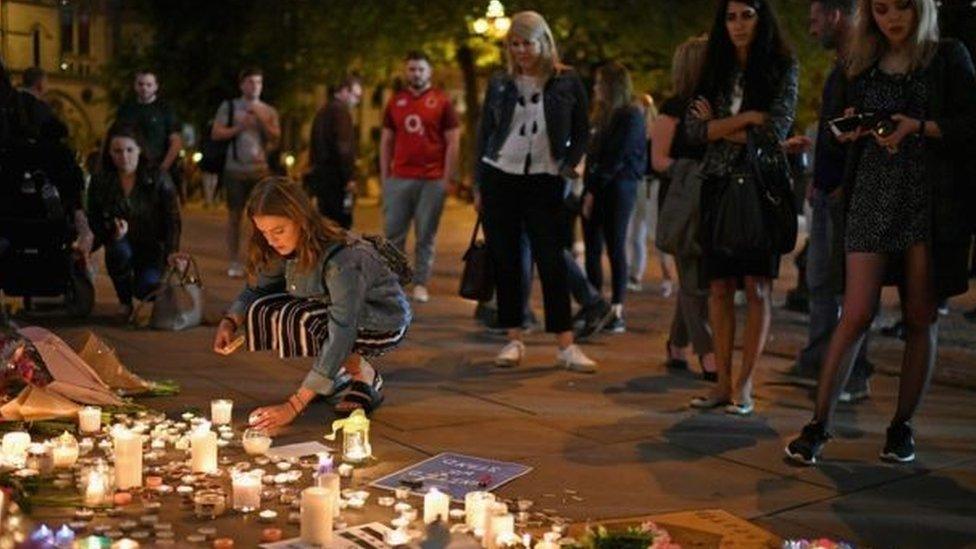
Twenty-two people were killed when Salman Abedi detonated a suicide bomb at an Ariana Grande concert on 22 May
"If by now people are still struggling to cope, they may benefit from some professional mental health support."
The Hub will aim to provide a central point for mental health advice and support and will work with other agencies to develop packages of care.
Six children were killed in the blast, including an eight-year-old girl, and a number of others were seriously injured.
Sara Barnes, operational lead for children and young people said: "Over time the majority of children and young people will be back in normal routines and coping better.
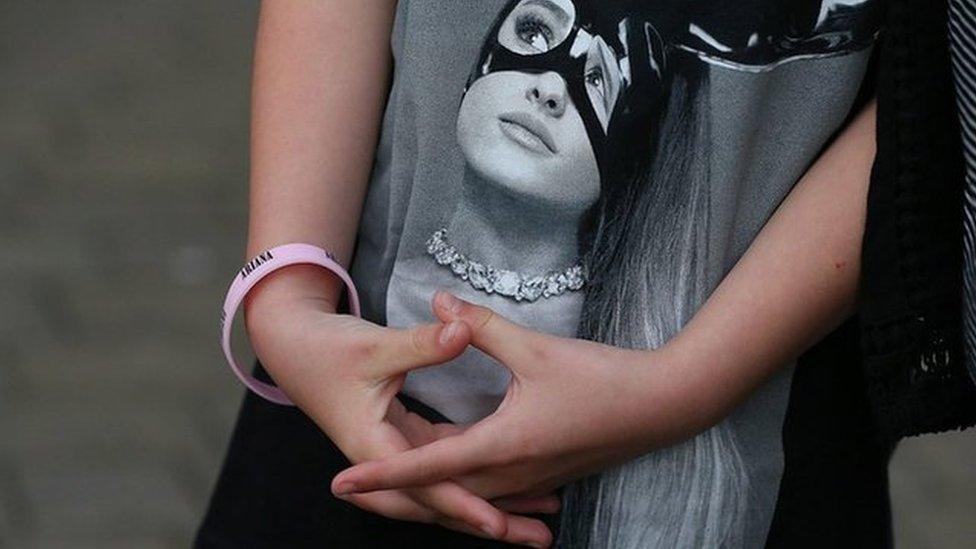
Parents are advised to give children reassurances that they are safe
"Now the summer holidays are here, we need to make sure they still know that help and support is available.
"Our advice to parents is to give children opportunity to talk when they want to, reassure them that they are safe, stick to usual routines and keep an eye on what they are watching on TV and social media so they aren't exposed to frightening images from the attack."
Dr Barrett stressed that it is a dedicated service for people who have been directly affected by the attack who are "experiencing high levels of distress", but advised anyone struggling with a mental health issue to see their GP or call NHS 111.
"It's really important to continue to look after your health and wellbeing after a traumatic incident, which means getting rest, eating well, returning to your routine, and staying connected with others," he added.
- Published31 July 2017
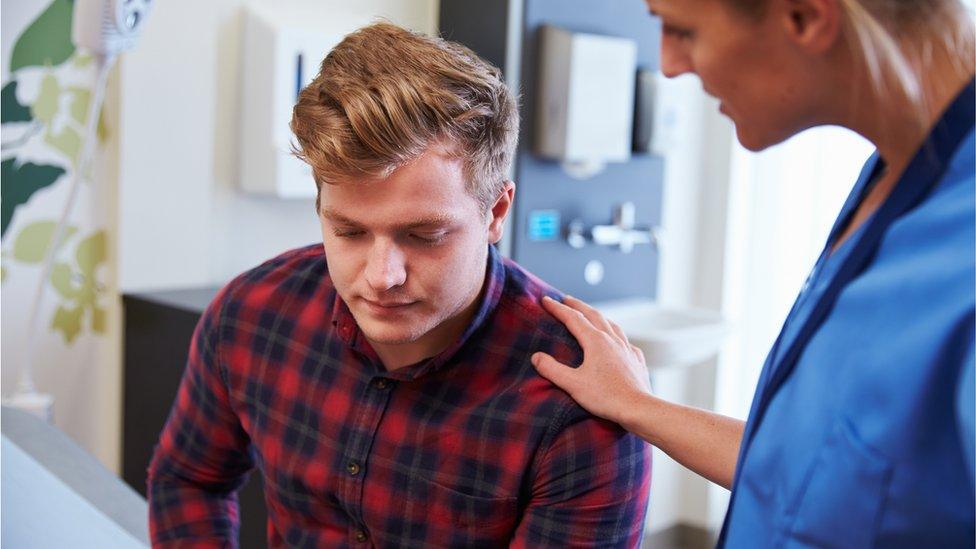
- Published19 June 2017
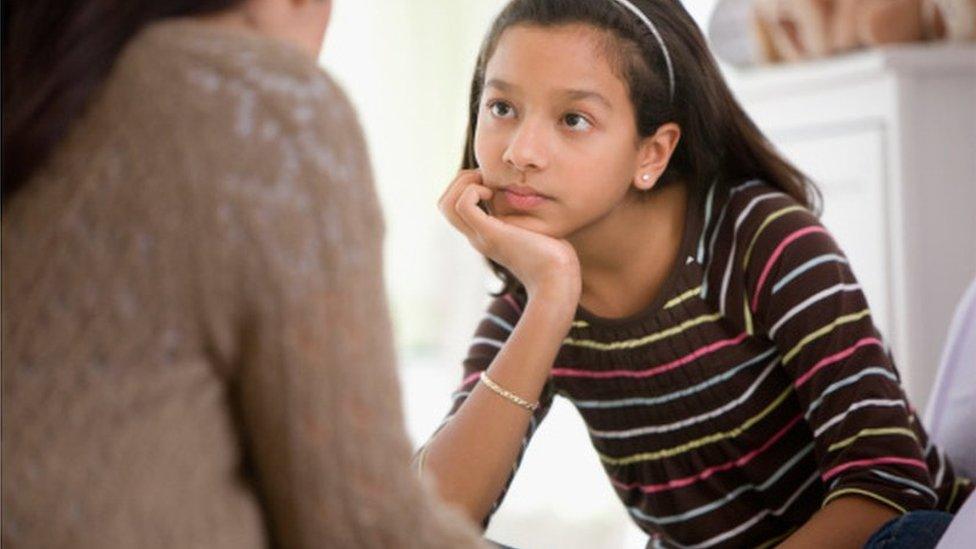
- Published30 July 2017
